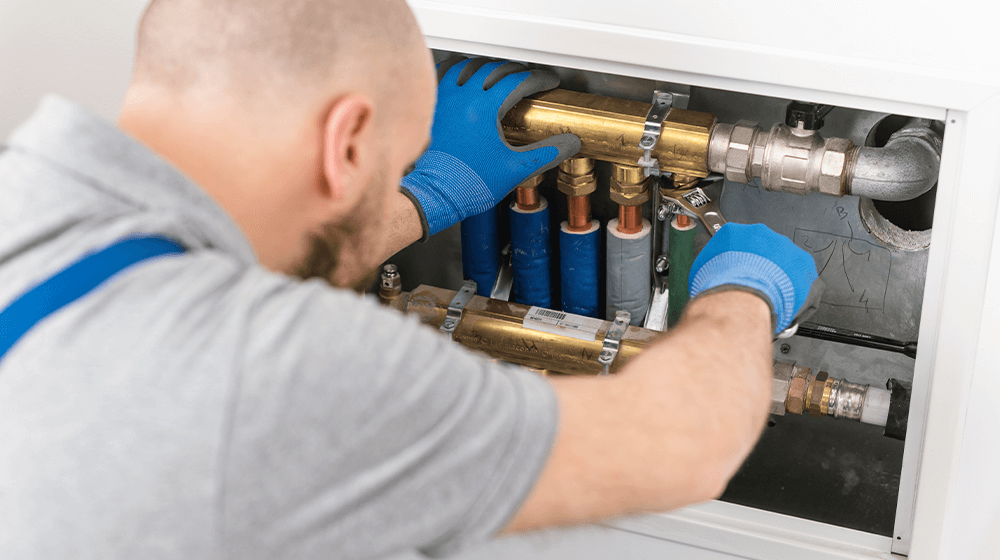
Mastering Pipes: Plumbing Renovation Insights
Embarking on a plumbing renovation is a significant endeavor that can improve functionality, efficiency, and even the aesthetics of your home. Whether you’re planning a bathroom upgrade or an entire plumbing overhaul, here are essential tips to guide you through a successful project.
Assess Your Plumbing System
Before diving into any renovation, conduct a thorough assessment of your existing plumbing system. Identify any leaks, corrosion, or outdated components that may need attention. Understanding the current state of your plumbing allows you to address issues proactively and ensures a more efficient and reliable system after the renovation.
Plan Your Layout Strategically
Strategic planning is crucial when it comes to plumbing renovations. Whether you’re redesigning a bathroom, kitchen, or the entire plumbing network, carefully plan the layout to optimize functionality. Consider the placement of fixtures, pipes, and drains to maximize efficiency and create a layout that meets your specific needs.
In the midst of your plumbing renovation project, explore Plumbing Renovation Tips from BMG Qatar for additional insights and inspiration. Whether you’re a DIY enthusiast or seeking professional assistance, these tips will contribute to the success of your plumbing renovation.
Upgrade to Efficient Fixtures
Modernize your plumbing fixtures to enhance efficiency and water conservation. Consider installing low-flow toilets, faucets, and showerheads to reduce water consumption without compromising performance. These upgrades not only contribute to environmental sustainability but also lead to long-term cost savings on your water bills.
Invest in Quality Pipes and Materials
Quality materials are the foundation of a reliable plumbing system. Invest in durable pipes, fittings, and fixtures to ensure longevity and minimize the risk of leaks or failures. Copper, PEX, and PVC are popular choices for plumbing pipes, each offering specific advantages. Choose materials that align with your renovation goals and budget.
Consider Water Heater Upgrades
If your plumbing renovation includes the water heating system, consider upgrading to a more efficient and energy-saving water heater. Tankless water heaters, for example, provide hot water on demand, reducing energy consumption compared to traditional tank-style heaters. Evaluate your household’s hot water needs and choose a water heater that aligns with your usage patterns.
Prioritize Ventilation and Drainage
Proper ventilation and drainage are critical aspects of plumbing renovations, especially in spaces like bathrooms and kitchens. Ensure that venting systems effectively remove odors and moisture to maintain indoor air quality. Additionally, optimize drainage systems to prevent water accumulation and potential damage. A well-ventilated and efficiently drained space contributes to the longevity of your plumbing.
Address Potential Code Compliance Issues
Before finalizing your plumbing renovation plans, familiarize yourself with local building codes and regulations. Ensure that your project complies with plumbing codes to avoid issues with inspections and approvals. Consulting with a professional plumber or building inspector can help you navigate potential compliance issues and ensure a smooth renovation process.
Include Shut-Off Valves for Each Fixture
Incorporate shut-off valves for each fixture in your plumbing renovation design. Individual shut-off valves provide the convenience of isolating specific fixtures or areas without disrupting the entire water supply. This proves invaluable in case of maintenance, repairs, or emergencies, allowing you to address issues efficiently without affecting the entire household.
Plan for Future Maintenance Accessibility
Design your plumbing renovation with future maintenance in mind. Ensure that key components, such as water heaters, pipes, and valves, are easily accessible for inspections and repairs. Planning for maintenance accessibility saves time and effort in the long run, making it simpler to address any issues that may arise in the future.
Consult with a Professional Plumber
While many plumbing renovations can be tackled as DIY projects, complex tasks may require the expertise of a professional plumber. Consulting with a plumbing professional ensures that your renovation adheres to industry standards and local regulations. Additionally, a plumber can provide valuable insights, identify potential challenges, and contribute to the overall success of your project.
By incorporating these plumbing renovation tips into your project, you’ll not only enhance the functionality of your plumbing system but also contribute to the overall efficiency and sustainability of your home. Whether you’re making minor upgrades or undertaking a comprehensive renovation, thoughtful planning and quality materials are key to a successful outcome.


